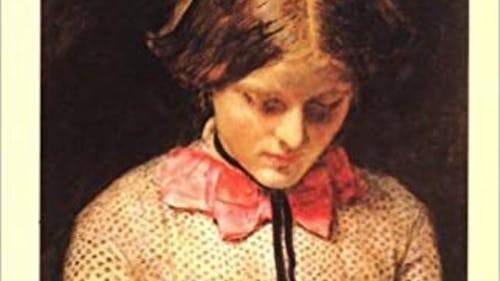Reading during pandemic gives new appreciation for Brontë's 'Villette'

It was the summer of 2020. Due to quarantine, I was without an internship or a part-time job, and overall, I had nothing to do inside or outside my room. The summer session of my class quickly went by and made a dent in my academic progress, while leaving behind a deeper feeling of emptiness for the rest of vacation.
I soon grew tired of the cell phone constantly in my hand, disgusted by the wasted time spent lying down on bed and going through social media — a shallow replacement of true human conversations.
The time was right to do something more meaningful with all of this spare time, and what was better for an English major to do than picking up a nice, long novel? Reading books might be a less popular hobby nowadays, but I am glad as ever that I kept it for all of these years.
I’ve also built up the ability to stand the long, clause-filled sentences characteristic of 18th and 19th century literature, which is helpful for when I’m trying to piece together a mammoth sentence while appreciating the characters’ reflections at the same time (looking at you, "Great Expectations").
I decided to read "Villette" by Charlotte Brontë the moment I looked at its description: A young English woman travels to another country in a search for a new life, encountering romance and difficulties along the way.
The notion of travel and adventure particularly appealed to me in my unchanging quarantine life. The description’s other selling point was the author, because any title with the author having the surname, Brontë, has my intrigue.
The plot, while set in a 19th-century city inspired by Belgium, can be related to the situations of present-day college students. "Villette" is about a woman named Lucy Snowe, who after being in a comfortable state for some years with a provider of means, is set to her own devices with only luck and diligence to accompany her.
She decides to travel to a foreign country in search of employment, and there she meets characters who she falls into unexpected relationships with — both friendships and romances. As typical of Brontë works, the novel contains gothic elements, which makes it an even more fitting read in the current pandemic, when there is gloom and less sunshine.
This novel is noted for describing much about the inner psyche of a person kept in distance from others. Snowe’s personality is both reserved and diligent, as even in the book’s first-person perspective, she is secretive yet exciting as a narrator. Much like with Jane Eyre’s titular heroine, a novel by the same author, she shines in her resoluteness against the characters who contradict her beliefs.
A promise of reading about this heroine’s adventures and romances was what initially intrigued me, but the exploration of her isolated state was the aspect that really drew me into the story. How she dealt and reacted toward the few people who interacted with her, and what happened after she lost them resonated with me as I sat in my room, separated from the rest of the world.
But perhaps I am also exaggerating when I compare college students in quarantine to this character, as many of them are in a much better position than Snowe who was without family, home or inheritance.
Snowe's willingness to explore the world, despite being in such a state, gained my admiration because if I was in the same position, I would feel completely hopeless. Her deficiencies were also a much greater problem in the classist and sexist setting of 19th century Europe.
She was “quarantined” from the rest of her society and the infectious disease affecting her was not the coronavirus disease (COVID-19), but poverty and lack of connections — things which if a woman was without during that time, they would be nothing but an object of pity to the rest of society.
Therefore, there is a quality of Snowe I would have taken for granted if I had read the novel in a much less stressful period than in the current quarantine: resilience.
Snowe goes through many difficulties in search of love and companionship, while at the same time trying to support her independence. Many students face similar issues in trying to balance out life, education and jobs. This novel continues to encourage me, because even in these precarious times, I am still looking forward to a better future.



